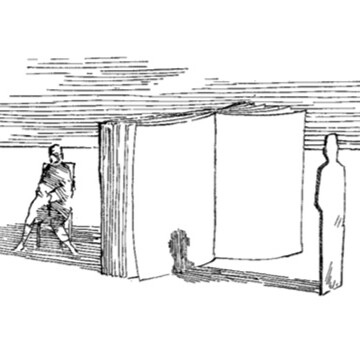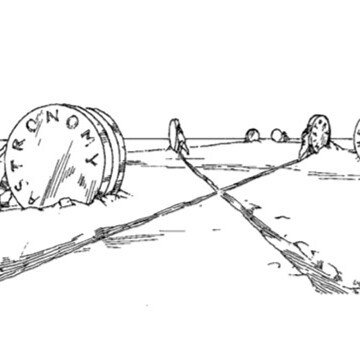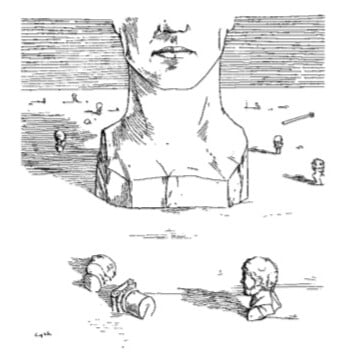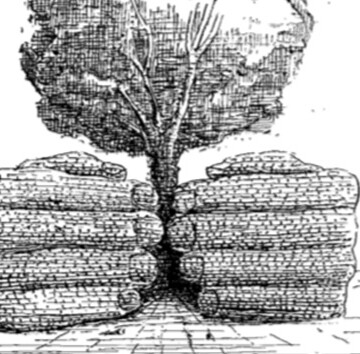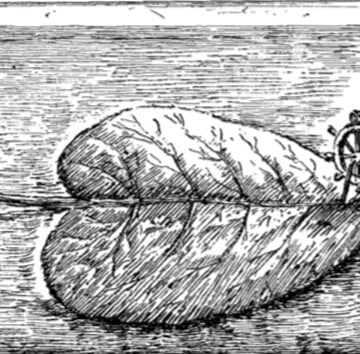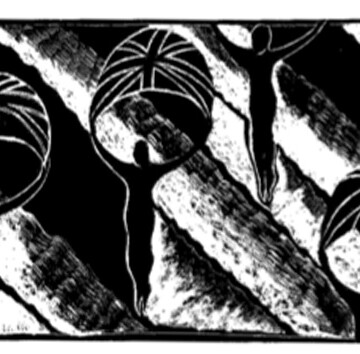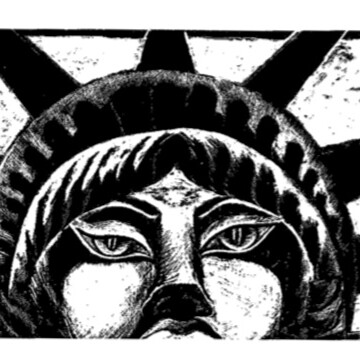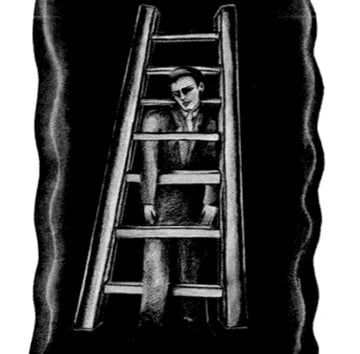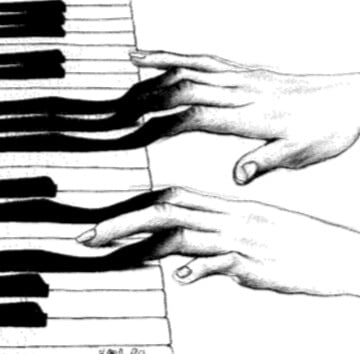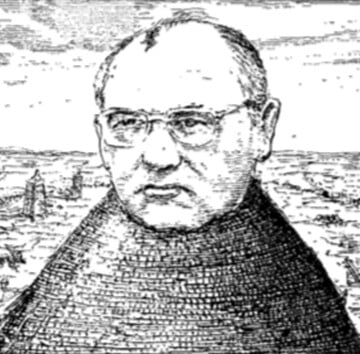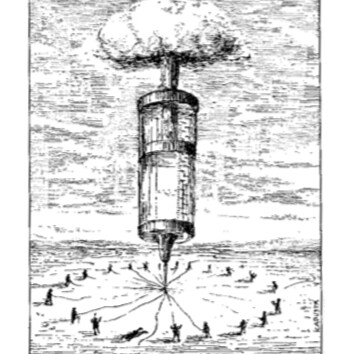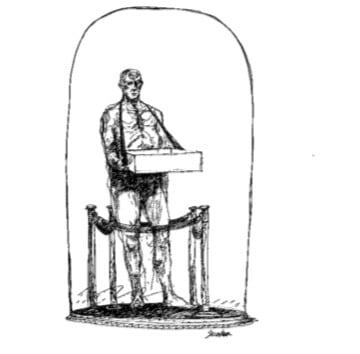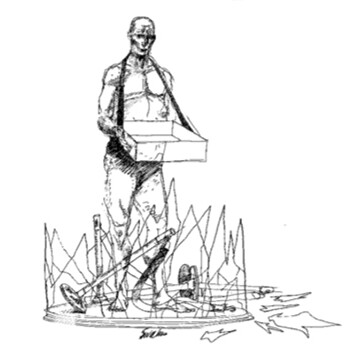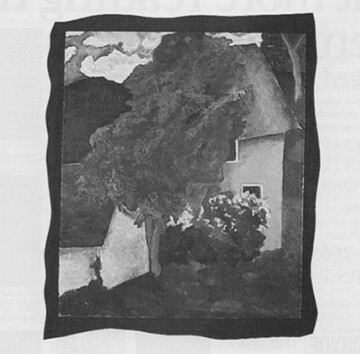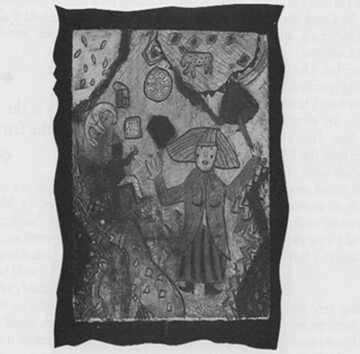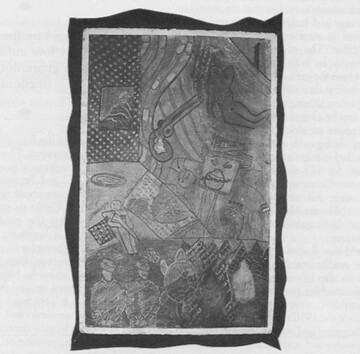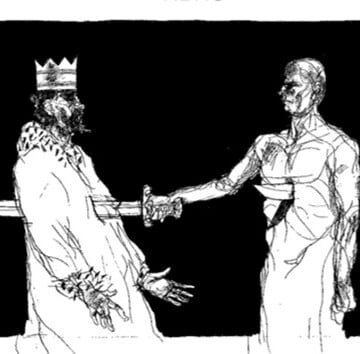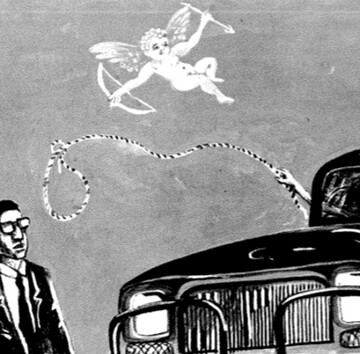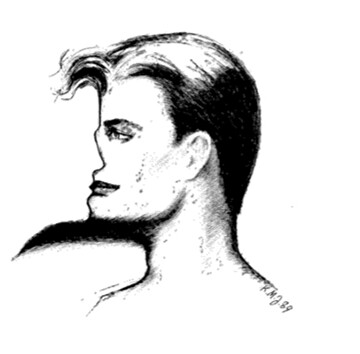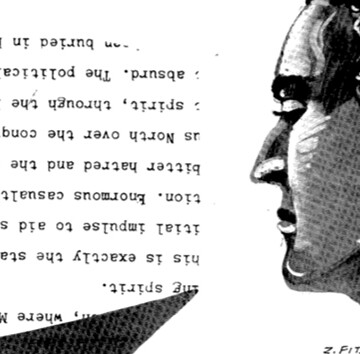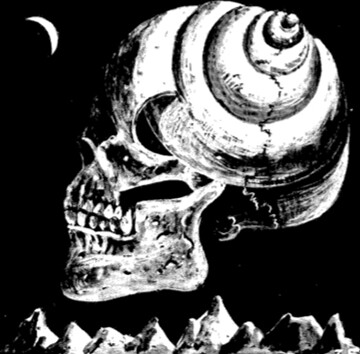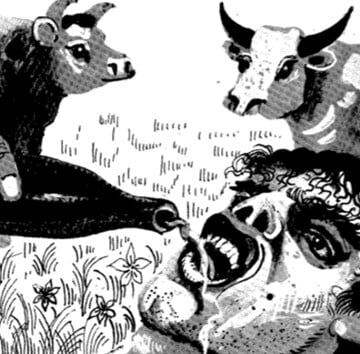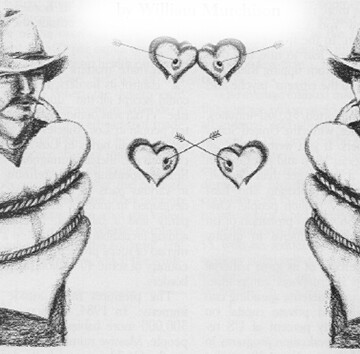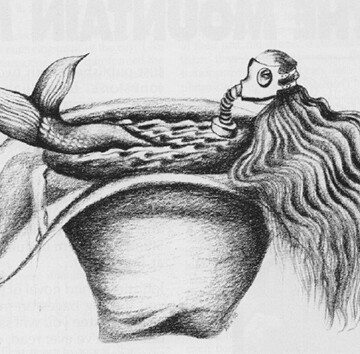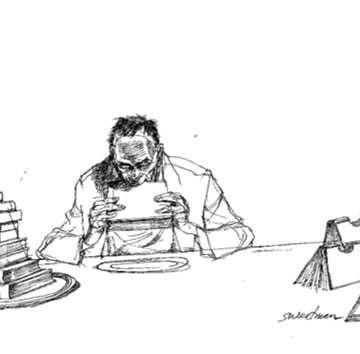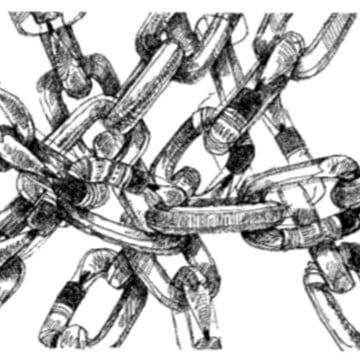Just after receiving an invitation from the editor of Chronicles to write about the college humanities curriculum, I received a letter from a friend and ally in education reform. It expressed alarm that “I had gone over to the other side”—an opinion that started, according to his letter, when I declined to label myself a...
Category: Web
The Teaching of Humanities and Other Trivia
“Humanities” is Western society’s name for the academic expression of its fundamental values. There are other branches of learning—medicine, law, engineering, and business, all of which benefit from the humanities—but only the “liberal arts” reflect a society’s soul, central beliefs, highest aspirations, and ultimately its culture. Yet during the last half-century America has witnessed the...
Academics, Therapists, and the German Connection
For several years now a heated debate has been going on over Western civilization and humanities requirements at some distinguished universities, most notably Stanford. The debate has brought up the question of a justification—or lack thereof—for forcing students into a sequence of courses devoted exclusively to Western thought. It has been argued, correctly, that thinkers...
Natural Technology
If asked to state the goal of the environmental movement, a participant in it would probably say something like: “to promote a sustainable relationship between human beings and nature.” How could one possibly object to such a formulation? Yet hidden in it is a set of assumptions that may paradoxically lie at the root of...
The New Environmentalism
More change has occurred in the environmental movement during the past ten years than in its entire previous history. Its thrust has become less ideological and more pragmatic, less New Age and more scientific. It is increasingly grounded in the databases of atmospheric science and the genetic models of conservation biology. The practice of conservation...
Still the Colonies
Since the days when Tom Paine set himself up as chief propagandist for the emerging American colonies the United States has been subject to invasion by British journalists. They come for a variety of reasons. Tired of tax collecting in England, Tom Paine came to start anew, and if doing so involved the common sense...
The Intransigent Uninvited
Today the United States takes in annually more than twice as many immigrants as all other countries in the world put together. Many Asian countries permit no immigration at all, and openly despise foreigners. The top U.S.immigrant exporter last year, Mexico (with 95,039), is also a vigorous deporter, sending back an average of 150 Central...
The Pros and Cons of Immigration: A Debate
Jacob Neusner, Graduate Research Professor of Humanities and Religious Studies, University of South Florida Martin Buber Professor of Judaic Studies, University of Frankfurt Immigration nourishes America, affirming the power of its national ideal: a society capable of remaking the entire world in the image of humanity in democracy. No country in the world other than...
The New Class Controversy
The recent successes of the American right depend, in part, on its ability to deflect lower-middle-class resentment from the rich to a parasitic “new class” of professional problem-solvers and moral relativists. In 1975, William Rusher of the National Review referred to the emergence of a “verbalist” elite, “neither businessmen nor manufacturers, blue-collar workers or farmers,”...
Art Is Always Political When the Government Starts Giving Grants
“In the background of the entire tedious debate over the NEA, the First Amendment has loomed, misunderstood and abused as usual, claimed by some as justification for their right to express a preference for causing pain to others during the sex act and asserted by others as the basis for a constitutional right to receive...
Want To Reform Public Education?
By now it should be obvious that “education reform” is a fraud. Its primary goal has not been to rescue children from public school malpractice, but to rescue the schools from angry parents and taxpayers. The 1980’s saw per-pupil spending climb by about one-third beyond inflation, almost entirely for doing more of the same rather...
Foreign Policy for the Post-Cold War World
Nineteen eighty-nine was a year of great joy for lovers of freedom everywhere. For it was the “revolutionary” year in which totalitarian communism, throughout Eastern Europe and perhaps even in the Soviet Union itself, suddenly collapsed like a house of cards. Many of our pundits, equating complexity and permanent quasi-gloom with profundity, sternly warned us...
A Federalist Agenda
After eight years in power, conservatives are down in the mouth. The right feels as out in the cold as it was during the wilderness period, fifteen years ago; and this time it does not even have much of a communist menace to fall back upon. Establishment Republicanism, as personified by George Bush, is in...
Leviathan’s Children
Washington apparatchiks have spent the last two decades in a frustrating search for a theme that could carry the sagging American welfare state. There are signs now that they have finally identified a, two-headed creature slouching toward Bethlehem-on-the-Potomac to be born: “families” and “children.” Jimmy Carter had a vague sense of the political power behind...
Angels From the Time to Come
Certain moments in a good story possess a quality that is logically very strange indeed, and that renders them often haunting and unforgettable. Consider Dorothea’s choice of Ladislaw as her lover in Middlemarch: the logic of fiction would dictate that Dorothea should pair up with Lydgate, who is a heavyweight like her, and if after...
Deep History
As I read the announcement and noted with admiration those receiving The Ingersoll Prizes, I can say in all humility that it never entered my head during the past several years that I might someday be so honored, and for that I thank you. I thank you also for the opportunity to make the following...
Inch by Inch
A text, or an epigraph, for what I am going to say: some lines from John Ciardi’s poem about the Birdman of Alcatraz who was, among other things, a trickster of sorts. These words are from Ciardi’s poem “Snickering in Solitary”: In every life sentence some days are better than others; even, sometimes, better than...
The Agony of Gorbachev
Mikhail Gorbachev has evidently imagined that a government turned virtuous would elicit a generous response from a naturally virtuous people. It is an “immaculate misconception” because the Russian people, always lethargic in the face of their leviathan government, have endured in the Soviet experiment a unique erosion of Edward Gibbon’s old Greco-Roman ideal of civic...
Quis Judicabit?
The discussion of “the end of history” by Francis Fukuyama in The National Interest (Summer 1989) has led to comment by numerous publicists. Among others Charles Krauthammer, George Will, Richard Bernstein, and a feature writer for Time have evaluated Fukuyama’s hypothetical arguments that the world may be moving toward a democratic capitalist final age: a...
Character and Nuclear Anxiety
American society is widely recognized as youth-oriented, but it has been a long time since any authoritative source has given us really good news about the young. Recent reports from the American Medical Association, the National Research Council, and the Council of Physical Fitness have been especially discouraging: the young exercise too little, eat too...
Before You Bet Against the Market . . .
“They’re wiping out our industries,” said my southern California friend, staring moodily out across the Pacific ocean beyond which They—the Japanese—presumably lurking even as he spoke. “They’re buying up all our land,” confirmed his wife. “Of course, we’re so stupid, we just let them.” “They need another earthquake over there,” her brother-in-law joked darkly. “That...
Whose Wealth of Whose Nation?
“Then the Gods of the Market tumbled, and their smooth-tongued wizards withdrew, And the hearts of the meanest were humbled and began to believe it was true That All is not Gold that Glitters, and Two and Two make Four— And the Gods of the Copybook Headings limped up to explain it once more.” Rudyard...
Put Money in Thy Purse
In 1967, The American Challenge by Jean-Jacques Servan-Schreiber predicted that by the 1980’s American multinationals would have virtually bought up European industry. A decade later, there was another big scare—the Arabs were going to buy up all the US farmland (some farmers now wish this had been true, since the price of farmland subsequently collapsed)....
The Lyric of Tradition
“The Lyric of Tradition” is an essay written nearly twenty-five years ago by the late Donald Davidson, celebrated American poet, critic, and philosopher of cultural change who developed, out of his own artistic practice, a comprehensive theory of the role of literature in a healthy society. It was a view not at all like those...
The Lure of Rural Life
Thomas Jefferson believed that virtue was to be found in the Spartan simplicity of ancient Greece rather than in the decadent cities of Caesar’s Rome. Agriculture, Jefferson wrote, was what developed moral and political virtue. Big cities corrupted people, he thought, and neither city men of commerce and capital nor city men who labored could...
The (Unexpected) Comeback of the Small Farm
The word’s been out for some time: they’re all gone, not a functioning one left. Statistics coming down from on high in the 1970’s “proved” that the small farm—defined as that with a total income of less than $20,000 annually—was about shot. This came as something of a surprise to those still living and working...
Those Deadly, Depressing, Syncopated Semiautomatic Assault Rifle Blues
An Exercise in Calculated Hysteria The semiautomatic rifle has been part of the American scene for nearly a century. In 1903 the Winchester Repeating Arms Company marketed the first commercially successful semiautomatic rifle. It was not designed as a military arm, and no sales were made to the US Army. The new rifle was marketed...
The Witch
She was a witch, I swear, she was a real witch! —Gogol When my novella, which I was writing obsessively all my senior year at the Academy and a year after that, was accepted by a publisher and I was given a modest advance, I decided to buy myself an apartment. I, of course, didn’t...
When the Schoolhouse Is Our House
Somebody recently did a “study” purporting to discover that at-home mothers spend hardly any more time daily with their children than mothers who work full-time outside the home. This is a neat trick on the part of the at-home moms surveyed, and I would like to know how they manage it. They must have superb...
The Spiritual Meaning of Philosophy
In 525 A.D. the Lady Philosophy reminded Boethius, in his death-cell, that true philosophers must think body, rank, and estate of less importance than their understanding of what was truly their own. This understanding of philosophy, which is also Epictetus’s and Aurelius’s, as something more than a pleasant enough word game, has been neglected by...
Taking the King’s Shilling
Historically, the primary function of schooling has been to teach the young how to live responsibly and productively in their own society. In our day, the notions of civic, familial, and vocational obligations have been virtually banished from pedagogy. Today’s ethically and morally barren system of education has not only failed to fortify its students...
The Closing of the Conservative Mind
Why do we call it liberal education? When an eighteen-year-old graduates from high school and goes off to college to pick up a smattering of history and literature, why should we describe his course of study as the liberal arts? Educators once knew the answers to these questions, but it has been many years since...
The Bull’s-Eye of Disaster
For over a decade now, it’s been commonplace for our leaders to urge us to put Vietnam behind us. My wife, Sybil, and I were face to face with our good friend George Bush when he said it again at his Inauguration in January. The Congressional Medal of Honor Society has front row seats at...
Buchenwald’s Second Life
Even in an age of glasnost, hardly anyone troubles to recall that when the Soviet Union occupied East Germany in 1945 it kept two Nazi concentration camps in full use for nearly five years, till February 1950, and at their old task of death. Soviet Buchenwald comes as a surprise, and that surprise is perhaps...
Liberalism: Collectivist and Conservative
I never exchanged a word with Richard Weaver. I knew him because he was a figure at the University of Chicago. I heard that he was a teacher who expected his students to meet a high standard of intellectual probity and rigor; I think that he expected the same of his colleagues. I was told,...
The Cost of Revolution England & 1789
The twin centenaries of the English and French revolutions are now upon us—1689 and 1789—and they seem fated to coincide with a moment when the word “revolution” has lost all its prestige and even much of its point. In 1987, for example, Paris was shaken by a book expressively called The Cost of the French...
Alien Worlds
She was a handsome woman, Raylene Thomason, not what you’d call beautiful, but with Cherokee blood that gave her a broad pleasant face with a clean jawline and steady dark eyes. She took her looks so much for granted that it seemed she paid no attention, and maybe she didn’t. Her appearance was useful for...
Dead Souls in the Classroom
“Thanatology” or “death education” now competes with driver’s ed and “social problems” for the attention of the nation’s high schoolers. First introduced on America’s college campuses in the 1960’s by such luminaries as Edgar Jackson, Richard Kalish, Robert Kastenbaum, and Herman Feifel, death education has, like many other dubious pedagogical experiments, trickled down to the...
“The” Patriarchy
Many words current in our culture carry within them a whole buried world of political assumptions and psychological payoffs. Just to use these words is to submit yourself to a powerful attempt by the words’ coiners or redefiners to shape reality and to impose a view of it that they consider advantageous to themselves. Often...
The New Eschatology of Peace
The relations of religious faith with political life in the modern world are riddled with paradoxes. In the Middle East, rapid secularization has provoked a fundamentalist revulsion, which seeks vainly to stem the tide of modernity that, at the same time, gives it all its strength. Middle Eastern fundamentalism is little more than a modernist...
Education for a Conquered Nation
Declining test scores. Illiterate, spiritless, and passive graduates who have little motivation to find a job or succeed. Youngsters with no skills to compete in the marketplace. This is the tragic record of American public education, after billions of dollars and 127 years of direct federal funding. The results seem more appropriate for a rebellious...
Unsere Leute
The familiar lane is rutted with two deep truck tracks. “This always happens when it rains,” I think, and worry about getting stuck until I remember that the rain was two days ago and the ruts would have hardened by now, forming a two-lane trail to the farmhouse, Grandma’s house, “Grandma in the country.” Grandma...
The Celtic Heritage of the Old South
Southerners are not like other Americans. Significant cultural differences have always separated them from the North. Even today cultural variations between Southern black and white people are fewer than those between white Southerners and white Northerners. In other words, the population of the United States is more divided culturally along regional lines than along racial...
Lone Star Populism
Out of thin air—or of mythic consciousness—a Texas governor once plucked unhesitatingly the mot juste. The governor, Allan Shivers, who served back in the 1950’s, was indignant over some piece or other of legislative tomfoolery. As he saw it, the whole enterprise was downright “un-Texan.” “Un-Texan.” Right there we had the nub of the matter....
Decline of the West
Imagine yourself going ahead in time—60 years ahead. Imagine yourself in the People’s Republic of North America, in the year 2050. In discussing the rise and fall of the American civilization, it will be necessary to examine the situation at the last time when historians felt this society could have saved itself from disintegration. Consequently,...
The Flies of Summer
Last summer I was standing next to a great bull buffalo in western Kansas. He was mad and had a right to be. My buddy Joe Kramer, along with other men from Kansas Fish & Game, had this great American bison in an animal squeeze while they took a blood sample and gave him a...
Publishers and Sinners
The misadventures of James Joyce’s Ulysses at the hands of publishers and editors has recently been in the news. Many of the commentators seem to believe that what Joyce suffered was unusual, and that most contemporary authors are treated better. Listen to Thomas Marc Parrott (writing in 1934) on George Bernard Shaw: Mr. Shaw, for...
Books and Book Reviewing, or Why All Press Is Good Press
When Bob Woodward published Veil: The Secret Wars of the CIA, in October of 1987, two things made that book news. One was his assertion that William Casey, the late director of the CIA, had admitted to knowing about the transfer of funds in the Iran-contra deal. The other was the skepticism over Woodward’s claim...
Don’t Quit Your Job to Raise a Litmag
“Poetry is the most overproduced commodity on the market, next to zucchini.” —Judson Jerome, Writer’s Digest poetry columnist since 1960 According to a 1985 study cited by Writer’s Digest Books, 23.3 percent of all people who think of themselves as writers—or “more than two million people“—write poetry for publication. It follows that there are then...
Writers’ Unions
“PEN international is working for your release,” my lawyer told me. In the bare, mean interview room of the Belgrade District Prison he smiled at me, and I smiled back, because the mikes could not pick that up. There were no TV cameras there, yet, to monitor our winks and nods—the language of slaves, as...
